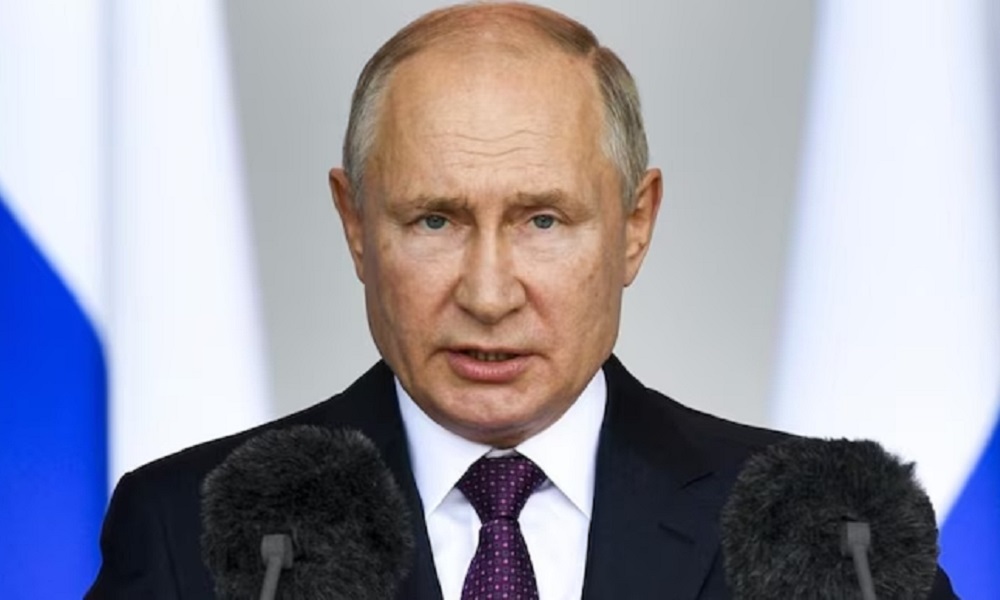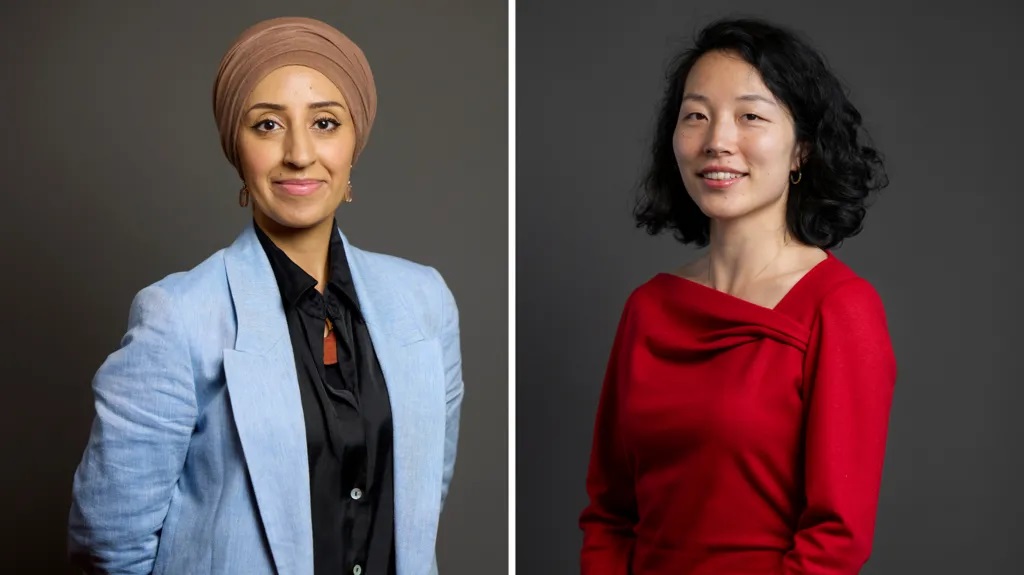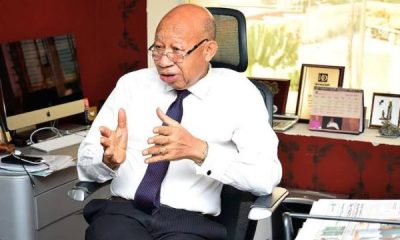Foreign
If Putin wins, expect the worst genocide since the Holocaust

Today, Karolina Hird of the Institute of the Study of War in Washington DC considers the price for ordinary Ukrainians.
Over 800 days into Russia’s full-scale invasion of Ukraine, it is easy to see the war as merely lines and colour-coding on a map. While the lines and the military movements they represent matter, those abstractions obscure the human realities behind those lines.
To be clear from the start: Russia is actively, undeniably carrying out a genocide to destroy Ukrainian identity and independence. It does this by utilising ethnic cleansing campaigns, sexual violence, and the mass deportation of Ukrainian children as part of a “forced Russification” effort. I have been following this from Washington ever since the war began.
As such, if Russia wins, the worst genocide on European soil since the Holocaust is almost guaranteed.
The Kremlin has loudly proclaimed its intent to destroy Ukraine as a state and a nation. Russian President Vladimir Putin’s 2021 essay “On the historical unity of Russians and Ukrainians,” called Ukrainians a confused people, unjustly and forcibly torn away from Russia by nefarious external forces. The Kremlin-controlled Russian Orthodox Church frequently espouses the “trinity doctrine,” the idea that Ukrainians (and Belarusians) belong to the Russian “nation” and must be “reunified.”
Russian politicians and pundits frequently call Ukraine an “artificial concept” and a “fake country” that does not deserve to exist. Russia has adopted a whole-of-government approach to build the narrative that Ukraine and Ukrainians have no right to exist as a sovereign people in a sovereign state.
Given these officially stated aims, are the genocidal actions Russia has taken to pursue them any wonder? The Convention on the Prevention and Punishment of the Crime of Genocide defines genocide as acts committed “with intent to destroy, in whole or in part” a specific group.
The destruction need not be accomplished physically – actions taken to destroy a group’s identity without killing all members of the group also constitute genocide. The Russian genocidal project includes horrific acts of violence, to be sure, including summary executions, sexual assaults, arbitrary detentions, and torture. It includes the forcible deportation of children from Ukraine to Russia, which the Genocide Convention explicitly specifies also constitutes genocide.
The deportation of Ukrainian children is a key component of Russia’s genocidal project – one that would only be extrapolated if Russia were to win the war and the rest of the country were seized by force. The Ukrainian government has verified the deportation of 19,546 Ukrainian children as of April 29, 2024. The true number is likely much, much higher considering that Ukrainian officials can only verify the deportation of children who have someone to vouch for their identity, leaving orphans and children without guardians unaccounted for.
The Kremlin has facilitated and celebrated the deportation of children to Russia, claiming it offers children an opportunity to rest and rehabilitate after living in a war zone (which Russia created by invading Ukraine). These children are subject to Kremlin-approved re-education programmes along Kremlin-accepted social, linguistic, and cultural lines and sometimes forced into military training.
Russian authorities have deported children to “rest” and “relaxation” camps throughout Russia, one of which in Russia’s Primorsky Krai is closer to Alaska than to Ukraine. High-ranking Kremlin officials, including Putin’s Commissioner on Children’s Rights Maria Lvova-Belova, have personally adopted deported Ukrainian children. She now has an arrest warrant, issued by the International Criminal Court (ICC).
Tens of thousands of Ukrainian young people are growing up under Russian military occupation, forcing them to abandon their language, culture, and history as the Kremlin seeks to destroy “in whole or in part” Ukrainian identity. This would become an entire generation were Moscow to subjugate Ukraine. Those already living under Russian occupation suffer daily efforts by Russian occupation authorities to strip them of their Ukrainian identity.
Russian authorities co-opted the school system in occupied Ukraine under the euphemism of bringing it up to the “Russian standard”: teaching only the Kremlin-approved version of Russian history in which Ukraine has no independent identity and depriving children of access to Ukrainian-language education. Russian occupation authorities also use schools to militarise children, instilling in them Russian “military-patriotic ideals” and establishing a direct pipeline into Russian military–affiliated organisations to facilitate their future recruitment into the Russian military to fight against their compatriots.
The thread of destruction and eradication runs through daily life in occupied Ukraine. Russian occupation officials have discussed forcibly deporting or summarily executing civilians who display characteristics deemed to be pro-Ukrainian or anti-Russian. Russian administrators use the threat of withholding access to basic goods and services to coerce Ukrainians to give up their Ukrainian passports for Russian ones, permanently changing the Ukrainian spelling of their names to the Russian version. Russian economic “enrichment” and infrastructure “development” projects cripple the ability of occupied areas to exercise economic self-sufficiency, generating devastating dependencies on the Russian federal government and driving a wedge between Kyiv and occupied territories.
Again, this constitutes genocidal behaviour, even when it is not exterminating people.
That said, Russia’s efforts to destroy Ukraine include ethnically-cleansing occupied Ukraine by replacing Ukrainians with Russian citizens. Russian officials claim that Russia has “accepted” over 4.8 million Ukrainians, including 700,000 children, since the beginning of the war.
There is no way to verify this number, but it emphasises the scale of movement to Russia from Ukraine since 2022, all of which occurred in the coercive context of Russian military occupation. The Kremlin is repopulating occupied Ukraine with Russian citizens to fundamentally alter its demographics and complicate future reintegration efforts. Based on examples of similar ethnic cleansing in the past, many will have inevitably died as a consequence. And that is before one even considers the blatant executions of innocent civilians by Russian soldiers, or the deliberate targeting of civilian population areas.
International legal procedure is set up to deal with atrocities after they happen. This is why Russian war crimes in Bucha, Izyum, Kherson City, and other liberated settlements have received widespread international attention and condemnation, and deservedly so. This is why the ICC has issued arrest warrants for Putin and Lvova-Belova, as their crime of facilitating the deportation of children is visible and evident.
The international humanitarian community is less effective, however, at addressing what happens daily behind the frontlines. In many cases, Russia’s genocidal project in Ukraine is banal, mundane, and hard to track and prove. But every aspect of Russia’s occupation of Ukraine is deliberate and flows from Putin’s initial justification for the invasion. It is meant to make real the Kremlin lie that Ukraine has no right to exist and that there is no such thing as a Ukrainian people.
Ukraine is fighting a war for the survival of the Ukrainian people. Russia’s genocidal project is the purpose of Russia’s military operations, and Ukraine’s supporters must not separate the two. Should Ukraine fall to Russia on the battlefield, the rest of its people will fall victim to the genocidal project Russia is conducting in the lands it already controls, which “only” constitutes about 20 per cent of the country’s legal territory. Imagine how many millions would be victims of this abhorrent behaviour if it reaches 30 per cent, 40 per cent, or even 100 per cent.
Indeed, many military experts would argue that Nazi-style tactics would be the only way to quell a population so vehemently opposed to Russia’s control. We would see horrors unfold daily.
We must face this reality squarely and stop blithely talking about offering “territorial” concessions to “stop the fighting” without forcing ourselves to confront the horrors that such concessions will inflict on the people living in those lands.
Putin’s invasion was never about seizing limited bits of land. It was always about destroying a people. Ukraine’s supporters must therefore recommit themselves to the project of saving this people and showing that they will resist and defeat aggression and genocide on this scale.
Karolina Hird is Russia Deputy Team Lead and Analyst at the Institute for the Study of War in Washington DC.
She has contributed to the Telegraph’s daily podcast ‘Ukraine: The Latest’, your go-to source for all the latest analysis, live reaction and correspondents reporting on the ground. With over 85 million downloads, it is considered the most trusted daily source of war news on both sides of the Atlantic.
You can listen to one of her extended interviews on Russian war crimes here.
Foreign
EU says it prefers negotiations, but proposes first tariffs on US imports

The European Commission said on Monday it had offered a “zero-for-zero” tariff deal to avert a trade war with U.S. President Donald Trump as EU ministers agreed to prioritise negotiations, while striking back with 25% tariffs on some U.S. imports.
The 27-nation bloc faces 25% import tariffs on steel and aluminium and cars and broader tariffs of 20% from Wednesday for almost all other goods under Trump’s policy to hit countries he says impose high barriers to U.S. imports.
On Monday evening, the Commission proposed its first retaliatory tariffs at 25% on a range of U.S. imports in response to Trump’s steel and aluminium tariffs rather than the broader levies.
However, the list was shortened after the EU executive bowed to pressure from member states and removed bourbon, wine and dairy after Trump threatened a 200% counter-tariff on EU alcoholic drinks. France and Italy, major exporters of wine and spirits, were particularly concerned.
EU trade chief Maros Sefcovic said earlier on Monday the retaliation would impact less than the previously announced 26 billion euros ($28.4 billion). The tariffs for most of the goods will go into effect May 16 and some from December 1.
Ministers overseeing trade met in Luxembourg on Monday to debate the EU’s response and discuss relations with China. Many said the priority was to launch negotiations to remove Trump’s tariffs, rather than fight them.
Michal Baranowski, deputy economy minister of Poland, told a press conference after the meeting that his EU counterparts did not want to be “trigger-happy”.
Sefcovic said discussions with Washington were at an early stage and that he had offered “zero-for-zero” tariffs for cars and other industrial products, expressing hope that discussions could begin.
However, Trump’s top trade adviser on Monday dismissed tech-billionaire Elon Musk’s push for “zero tariffs” between the U.S. and Europe, calling the Tesla CEO a “car assembler” reliant on parts from other countries.
“While the EU remains open to – and strongly prefers – negotiation, we will not wait endlessly,” Sefcovic said, adding the bloc would push ahead with countermeasures and steps to avoid floods of diverted imports.
The EU is set to approve the first retaliatory measures this week. The bloc will start collecting the tariffs on April 15, with a second tranche starting a month later.
The removal of bourbon from the list of items subject to the EU’s retaliatory tariffs on U.S. imports “would be great news, and we are hopeful this is the case,” said Chris Swonger, chief executive of the Distilled Spirits Council of the United States. “It would be the first step toward getting the U.S.-EU spirits sectors back to zero-for-zero tariffs and untangling distilled spirits products from these wider trade disputes.”
EU KEEPS ALL RETALIATION OPTIONS OPEN
The bloc is expected to produce a larger package of countermeasures by the end of April, as a response to U.S. car and broader tariffs.
Sefcovic said the EU was ready to consider all retaliatory options. One is the EU’s Anti-Coercion Instrument, which allows it to target U.S. services or to limit U.S. companies’ access to EU public procurement tenders.
“We are prepared to use every tool to protect (the) single market,” he said, echoing the views of French Trade Minister Laurent Saint-Martin.
In a war of tariffs on goods, Brussels has less to target than Washington, given EU goods imports from the U.S. totalled 334 billion euros ($366.2 billion) in 2024, against 532 billion euros of EU exports to the U.S.
Some EU countries, particularly those exposed to trade with the United States, urged caution. Irish Foreign Minister Simon Harris described the Anti-Coercion Instrument as “very much the nuclear option.”
Baranowski of Poland said EU members were willing to keep options open, with a stress on proportionality.
“There were various ideas put on the table. Some countries mentioned services. Others didn’t. Some countries mentioned digital services, others didn’t,” he said.
Outgoing German Economy Minister Robert Habeck said the EU should realise it was in a strong position – if it was united.
“The stock markets are already collapsing and the damage could become even greater … America is in a position of weakness,” he said in Luxembourg.
Foreign
British MPs return to London after Israel deportation

Two Labour MPs say they are “astounded” to have been denied entry to Israel while on a trip to visit the occupied West Bank.
Abtisam Mohamed and Yuan Yang said it was “vital” parliamentarians were able to witness the situation in the occupied Palestinian territory first-hand.
They were refused entry because they intended to “spread hate speech” against Israel, the nation’s population and immigration authority said.
Foreign Secretary David Lammy criticised Israeli authorities, describing the move as “unacceptable, counterproductive, and deeply concerning”.
But Conservative leader Kemi Badenoch said Israel had a right to “control its borders”, adding it was “significant” there were Labour MPs other countries did not want to let in.
Yang, the MP for Earley and Woodley, and Mohamed, the MP for Sheffield Central, flew to Israel from London Luton Airport with two aides on Saturday afternoon.
The Israeli immigration authority said Interior Minister Moshe Arbel denied entry to all four passengers after they were questioned. It accused them of travelling to “document the security forces”.
The Israeli embassy in London said in a statement on Saturday that the country “will not allow the entry of individuals or entities that act against the state and its citizens”.
It said Mohamed and Yang had “accused Israel of false claims” and were “actively involved in promoting sanctions against Israeli ministers”.
It also said they had supported campaigns aimed at boycotting the country “at a time when Israel is at war and under attack on seven fronts”.
The UK Foreign Office said the group was part of a parliamentary delegation. However, Israel’s immigration authority said the delegation had not been acknowledged by an Israeli official.
The Israeli embassy said the MPs “were offered hotel accommodation, which they declined” and the cost of their return flight to the UK was covered.
Israel’s Interior Ministry said the MPs left the country early on Sunday.
Mohamed and Yang said their trip had been organised with UK charities that had “over a decade of experience in taking parliamentary delegations”.
“We are two, out of scores of MPs, who have spoken out in Parliament in recent months on the Israel-Palestine conflict and the importance of complying with international humanitarian law,” the MPs said in a joint statement.
“Parliamentarians should feel free to speak truthful in the House of Commons, without fear of being targeted.”
Lammy said the Foreign Office had been in touch with both MPs to offer support, adding: “I have made clear to my counterparts in the Israeli government that this is no way to treat British parliamentarians.”
The Council for Arab-British Understanding and Medical Aid for Palestinians – the latter of which is a registered UK charity – said in a joint statement that they had organised the trip.
“This visit was part of that long-standing programme,” they said.
“When questioned, the group was clear, open and transparent about the aims and objectives of the visit, which included visiting a range of projects run by humanitarian and development organisations operating in the West Bank.
“The group had informed the UK consul general in Jerusalem of their visit and was planning to meet with them as part of the itinerary.”
Both Yang and Mohamed – who were first elected in 2024 – have made several interventions on the Israel-Hamas conflict in Parliament.
In February, Mohamed initiated a cross-party letter, signed by 61 MPs and lords, calling for a ban on goods from Israeli settlements on Palestinian territory, citing an opinion from the International Court of Justice (ICJ).
She has also criticised Israel for withholding humanitarian aid from Gaza, telling the House of Commons in October that international law “prohibits the starvation of civilians as a method of warfare”, and has mentioned humanitarian organisations’ claims of “ethnic cleansing” in Gaza.
In January, Yang spoke in favour of bringing sanctions against Israeli ministers Itamar Ben-Gvir and Bezalel Smotrich, after they suggested building Israeli settlements in northern Gaza to encourage Palestinians to leave.
She has also highlighted the dangerous conditions journalists and medical professionals face while in the Palestinian territory.
When asked about Israel’s decision, Conservative leader Kemi Badenoch told the BBC’s Sunday with Laura Kuenssberg that countries “should be able to control their borders”.
“What I think is shocking is that we have MPs in Labour [who] other countries won’t allow through,” Badenoch said. “I think that’s very significant.”
Her comments were rebuffed by Emily Thornberry, the Labour chair of the foreign affairs select committee, who described Yang and Mohamed as “highly respected parliamentarians” and “potential leaders”.
“Israel is badly advised to try and alienate them, to humiliate them and to treat them in this way,” she told the programme.
“I think that it’s an insult to Britain and I think it’s an insult to Parliament.”
Sir Ed Davey accused Badenoch of “yet another complete shocker”.
The Liberal Democrat leader said she “has once again shown unbelievably poor judgement by failing to back two British MPs denied entry to Israel”.
Lammy called Badenoch’s comments “disgraceful”, asking her: “Do you say the same about Tory MPs banned from China?”
During the war in Gaza, there have been protests, violent incidents and raids by Israeli forces in the West Bank. Hundreds of deaths have been reported there.
Israeli troops have been engaged in an extended operation in the occupied Palestinian territory, where two Palestinians were killed on Friday.
The current war began on 7 October 2023, when Hamas fighters launched a surprise attack on Israel, killing around 1,200 people and taking 251 hostages back to Gaza.
Since then, Gaza’s Hamas-run health ministry says more than 50,000 people have been killed. It said 1,309 people have died since a ceasefire ended on 18 March.
Lammy said: “The UK government’s focus remains securing a return to the ceasefire and negotiations to stop the bloodshed, free the hostages and end the conflict in Gaza.”
Foreign
US cancels visas for South Sudanese over deportation dispute

US Secretary of State Marco Rubio has announced that the US is immediately revoking visas issued to all South Sudanese passport holders due to the African nation refusing to accept its citizens who have been removed from the US.
Rubio, in a statement on Saturday, added that the US will also block any arriving citizens of South Sudan, the world’s newest country, at US ports of entry.
He blamed “the failure of South Sudan’s transitional government to accept the return of its repatriated citizens in a timely manner”.
A cornerstone of President Donald Trump’s immigration policy is removing unlawful migrants from the US, with the promise of “mass deportations”.
“It is time for the Transitional Government of South Sudan to stop taking advantage of the United States,” said Rubio.
“Every country must accept the return of its citizens in a timely manner when another country, including the United States, seeks to remove them,” he added.
It comes as fears grow that South Sudan may again descend into civil war.
On 8 March, the US ordered all its non-emergency staff in South Sudan to leave as regional fighting broke out, threatening a fragile peace deal agreed in 2018.
South Sudanese in the US were previously granted Temporary Protected Status (TPS), which allows them to remain in the US for a set period of time.
TPS for South Sudanese in the US had been due to expire by 3 May.
South Sudan, the world’s newest nation, gained independence in 2011 after seceding from Sudan.
But just two years later, following a rift between President Salva Kiir and Vice-President Riek Machar, the tensions erupted into a civil war, in which more than 400,000 people were killed.
A 2018 power-sharing agreement between the two stopped the fighting, but key elements of the deal have not been implemented – including a new constitution, an election and the reunification of armed groups into a single army.
Sporadic violence between ethnic and local groups has continued in parts of the country.
Since returning to office, the Trump administration has clashed with international governments over deportations of their nationals from the US.
In January, Colombian President Gustavo Petro barred two US military flights carrying deported migrants from landing in his South American country.
Petro relented after Trump promised to place crippling tariffs and sanctions on Colombia.
One of the most famous South Sudanese citizens currently in the US is Duke University star basketball player 18-year-old Khaman Maluach.
A spokesman for the university said on Sunday the school is “aware of the announcement… regarding visa holders from South Sudan”.
“We are looking into the situation and working expeditiously to understand any implications for Duke students.”
Maluach, who played for the South Sudanese Olympic basketball team last summer, spent much of his life in Uganda after fleeing his violence in his homeland as a child.
The first-year student – whose Duke team was eliminated from the national championship tournament Saturday night after losing in the semi-finals to the University of Houston – is widely expected to join the ranks of the NBA after graduation.
-

 News13 hours ago
News13 hours agoOERAF held memorial lecture on conflict resolution, security/safety of community in Nigeria
-

 News23 hours ago
News23 hours agoJust in: Founder of Diamond Bank and ex-chairman of MTN, Paschal Dozie is dead
-

 News19 hours ago
News19 hours agoTRADE WAR! U.S. angry over Nigeria’s import ban on 25 products
-

 Sports23 hours ago
Sports23 hours agoReal Madrid keeping tabs on Victor Osimhen
-

 News19 hours ago
News19 hours agoINTERVIEW: Introduction of Child Rights Curriculum In Nigerian Universities Will Take CRA to Families – Dr Obiorah Edogor
-

 News23 hours ago
News23 hours agoOERAF Executive Director Dr Akpodiete, Held Memorial lecture on Essence and benefits of health insurance+Photos
-

 News13 hours ago
News13 hours agoHoR Minority Caucus decries killings in Plateau, Benue states, urges immediate presidential decisive actions
-

 News6 hours ago
News6 hours agoBandits have seized control of 64 communities in Plateau – Gov Muftwang






